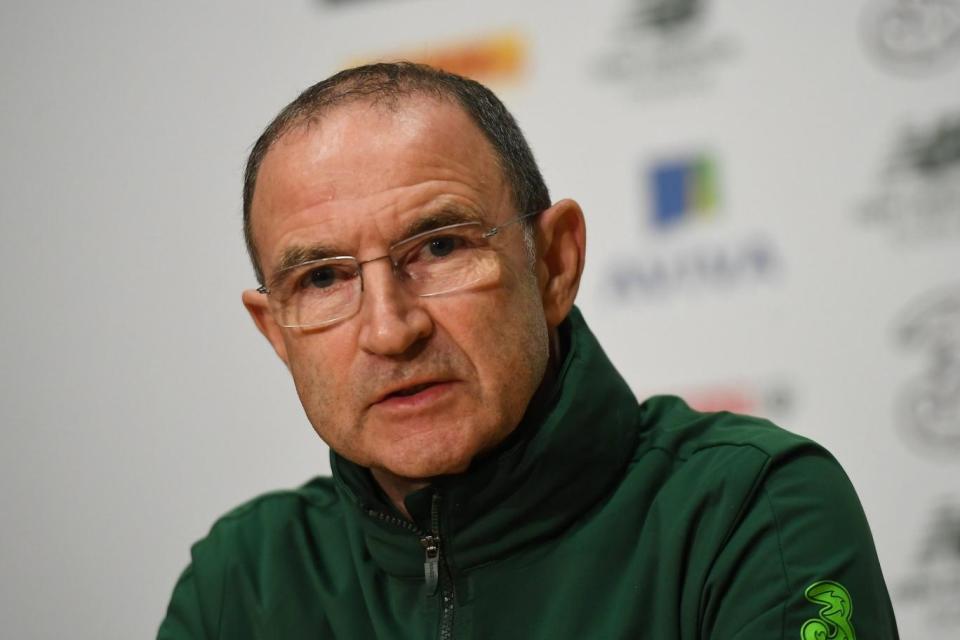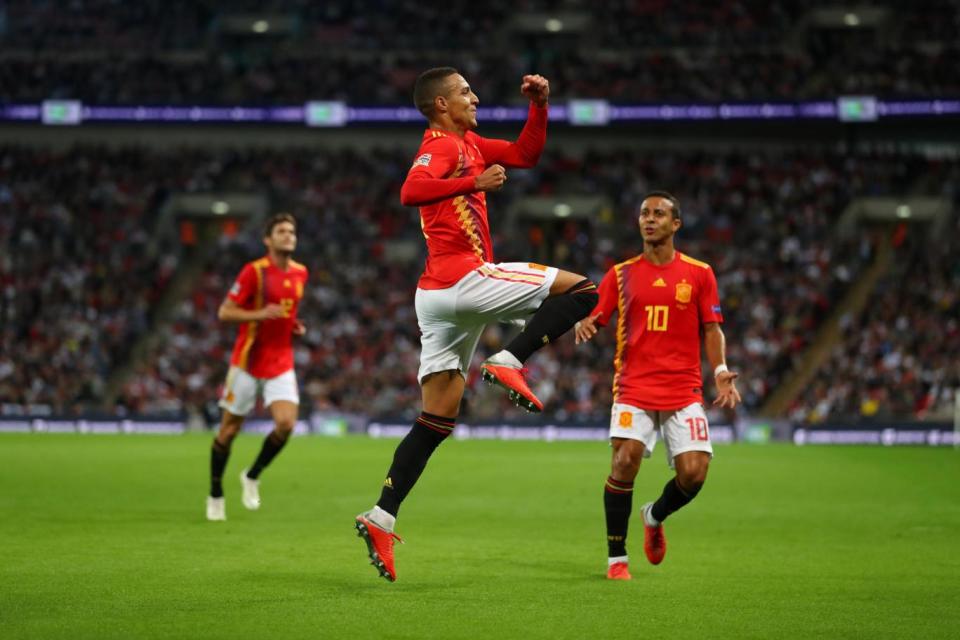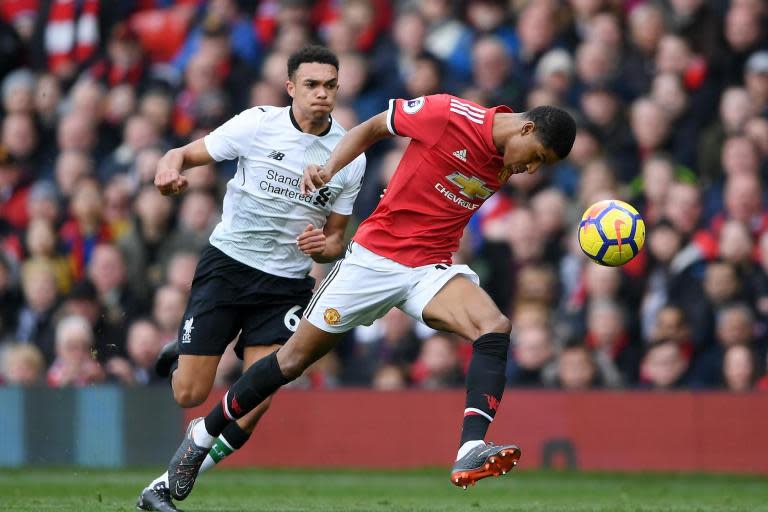It’s all hugs and high-fives now as England stars leave club rivalries at the door
Rio Ferdinand said something a while back that struck a chord this week. Talking about playing for England, he described how rivalries at club level overshadowed things. “It killed that England team, that generation,” he said.
“It killed that England team, that generation,” he said. “One year we would have been fighting Liverpool to win the League, another year it would be Chelsea.
“So, I was never going to walk into the England dressing room and open up to Frank Lampard, Ashley Cole, John Terry or Joe Cole at Chelsea, or Steven Gerrard or Jamie Carragher at Liverpool because of the fear they would take something back to their club and use it against us.”
Gary Neville echoed Ferdinand’s comments, admitting that the Manchester United and Liverpool lads often sat on separate tables for dinner.
Looking at the situation now, it couldn’t be more different. Premier League rivalries seem to melt away once ‘Club England’ convene at St George’s Park.
READ MORE: Mercedes junior Russell signs multi-year deal with Williams
READ MORE: Silva revels in Portugal triumph
READ MORE: 'Mourinho sacking would be unfair' - Essien
Only this week, United’s Marcus Rashford and Liverpool’s Trent Alexander-Arnold went bike riding together. They are clearly good mates, always laughing and joking. Club issues don’t appear to come into it. They get left at the door etched with the Three Lions.
In fairness, it’s the same with all of Gareth Southgate’s young squad. The days of holding something back, keeping team-mates at arm’s length for fear of handing over an advantage have long gone.
As an explanation, you could look at the fact many of these players came through the England ranks together, so know each other well. Southgate is a well-known believer in fostering bonds and understanding from an early age. Yet, that also happened to a certain extent with Ferdinand, Lampard and Gerrard, who progressed through the youth ranks together before graduating.
No, I think today’s matey atmosphere is more a generational thing. Players don’t tend to snarl at each so much these days. It’s all hugs and high-fives in the tunnel beforehand, rather than cold stares and caustic comments.
On top, social media plays a big part. Even if some of these players haven’t played together before, they might connect on, say, Instagram, and develop a bond. By the time they do meet, they feel like old friends.
As a result, you see Mason Mount, James Maddison and Jadon Sancho come into the set-up and settle down quickly, without seeming nervous or in any way reserved. I mean, look at their media appearances. Confidence flows through these talented young men as they talk with a big smile about their hopes for the future.
The big question, of course, is will all this togetherness and assurance convert into results? Can this new bunch become more successful than the group we used to call the golden generation? For sure, two stiff tests await in Croatia and Spain, both having recently proved too much for Southgate’s team. The old factions have gone, but will that make any difference in the long term?
Problems with the Republic keep mounting for Martin

I wonder if Martin O’Neill now regrets signing a contract keeping him as the Republic of Ireland’s manager until 2020. It would only be human, after all, to wish he had scarpered following that 5-1 thrashing by Denmark in November last year that ended all hope of a World Cup place.
And now here he is facing the Danes again on Saturday with a team chronically short of top talent. That fact cruelly came home to roost last month in the Nations League when Wales completely overran inept opponents lacking a cutting edge.
To be honest, that has been a problem since Robbie Keane retired: finding someone to score on a regular basis. Jonathan Walters has never been that sort of player and neither has Shane Long, currently suffering a dry spell for club and country of epic proportions.
O’Neill once remarked that he wished Long was “an exceptional scorer of goals rather than a scorer of exceptional goals”. Ouch! That’s got to hurt! Mind you, not quite as much as that felt by supporters if the Republic finish up on the end of another beating.
Searching for small mercies, at least Christian Eriksen won’t be out there to try and repeat last year’s hat-trick heroics. Even so, this is going to be tough for a side that had been distracted by all that unsavoury stuff about Roy Keane, O’Neill’s assistant, slaughtering Harry Arter for not being fit.
Arter is back in the fold now, so we’ll see how that goes. My guess is that team spirit within the group, traditionally a strength of the Irish, isn’t as good as it could be.
For O’Neill, the team’s great showing in the last Euros must feel like an age ago.
World Cup was merely a blip for Spain and classy Thiago will help them back to top

Spain beat us in the Nations League last month with some marvellous football — England’s first competitive defeat at Wembley for 11 years — before hammering Croatia 6-0.
If this is Spain going through a transitional stage, as we were led to believe after the World Cup, it’s a pretty appealing state of affairs. Luis Enrique’s side were sensational against Croatia, with Marco Asensio, 22, and Saul, 23, once again to the fore. These boys represent the future as La Roja move forward without their old heroes.
At 27, Thiago isn’t quite so young but his stunning performance at Wembley suggests he can now go some way to filling the void left by the great Xavi and Andres Iniesta. If we’re talking playmakers, Thiago should be right up there over the next few years as Spain start trying to climb back up the mountain.

 Yahoo News
Yahoo News 


